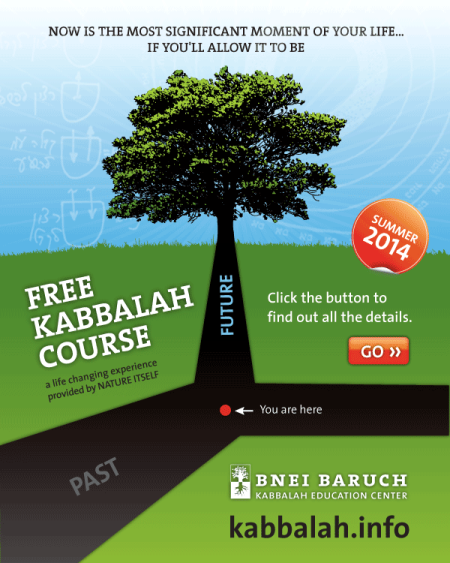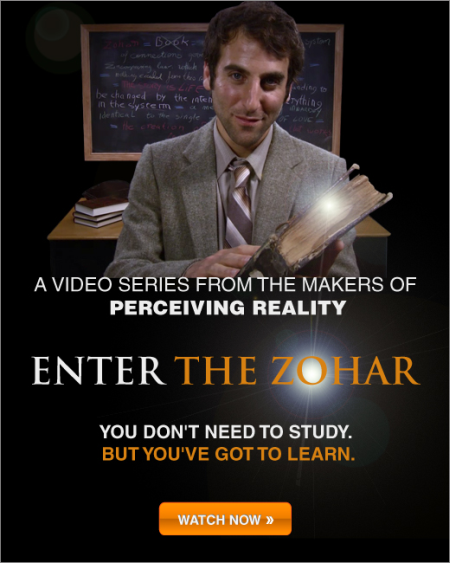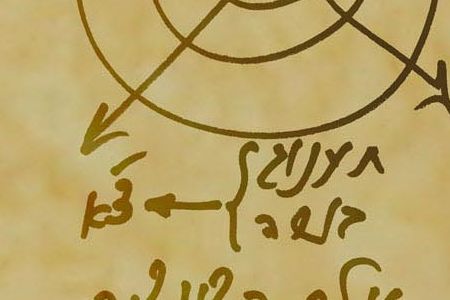The Bnei Baruch Kabbalah Education Center has announced the start date of the next Kabbalah Live Fundamentals course: Wednesday, June 11, 2014.
Enrollments for the upcoming course opened today at FreeKabbalahCourse.com
By signing up to the course, you will get:
- Instant access to an immediate self-study video course
- Instant access to a free copy of the eBook The Secrets of the Eternal Book, which describes the inner, spiritual meaning behind well-known Bible stories such as Noah’s Ark and the flood, Adam and Eve in the Garden of Eden, Cain and Abel, the Tower of Babel, Abraham, Terah and Nimrod, the 7 days of creation (Genesis), and more
- An e-mail reminder when the course start date comes closer
- Access to download the lessons if you can’t make them live, or if you want to review the live lessons
- Access to an online community with a student forum, where you can ask questions and get them answered by instructors and moderators
- Opportunity to further advance in your studies with more free courses after the initial free Kabbalah Fundamentals course
Moreover, a new Kabbalah Fundamentals course curriculum is currently being piloted and will be e-mailed to all who sign up closer to the start of the Summer 2014 course. The new curriculum aims to provide a more comprehensive introductory experience into the wisdom and method of Kabbalah.



